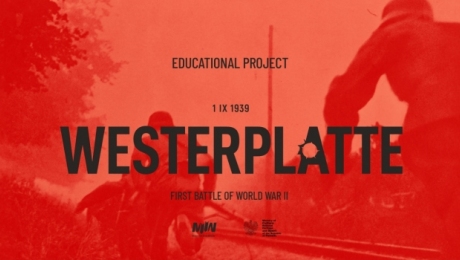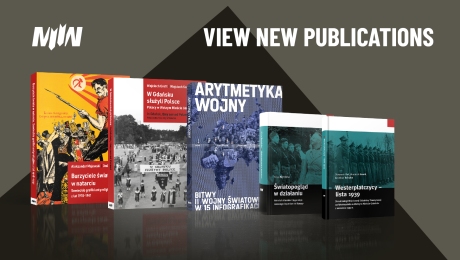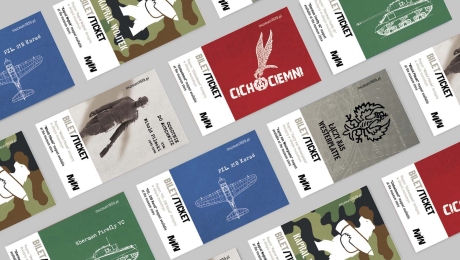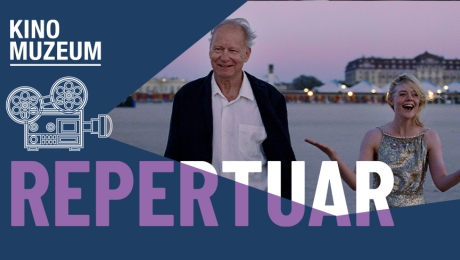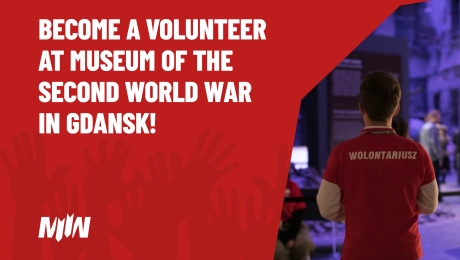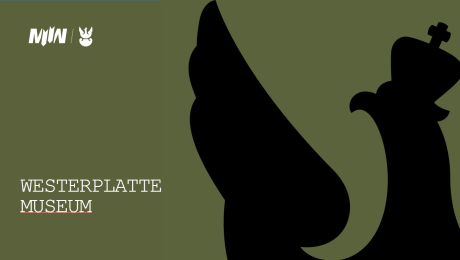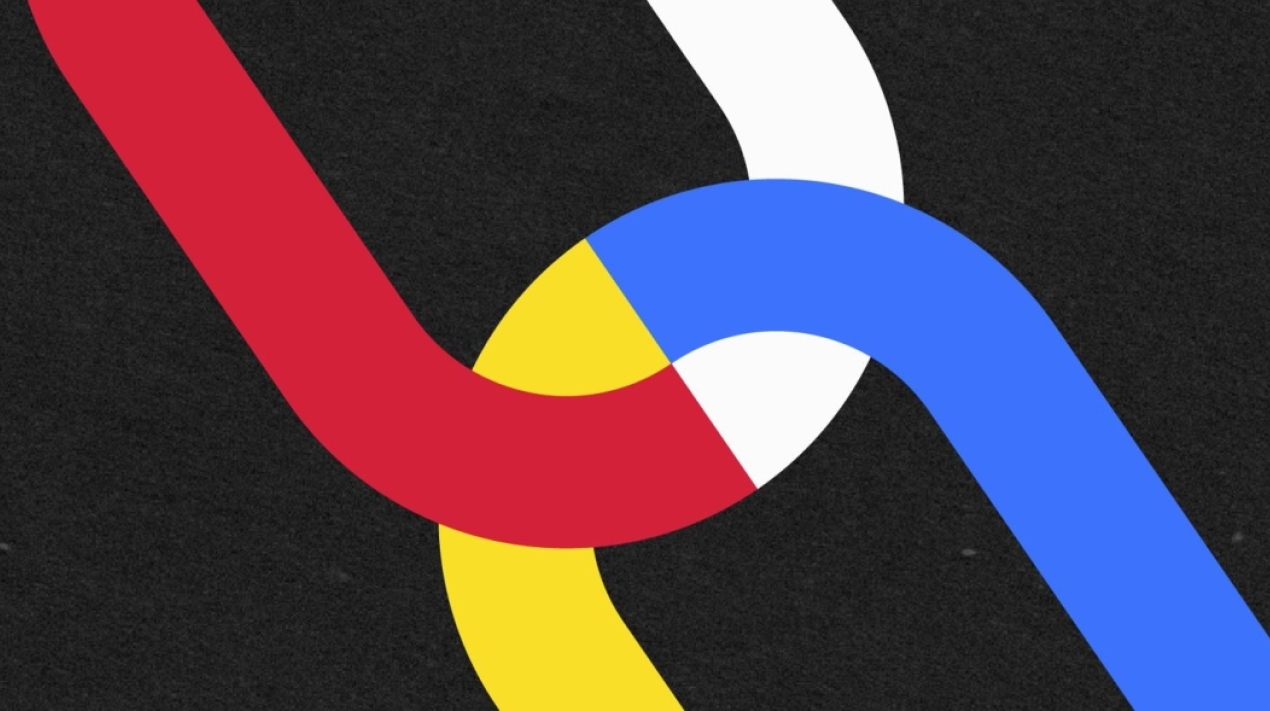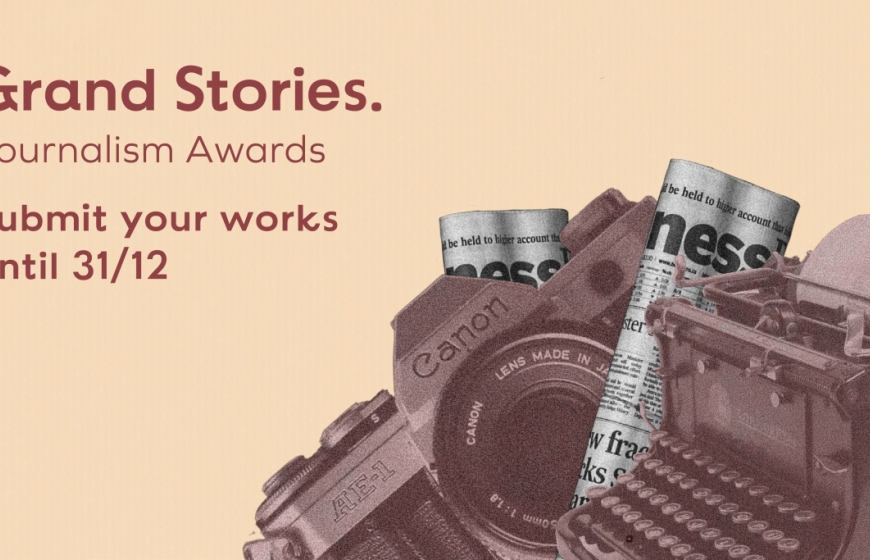A year in the shadow of war
Ladies and Gentlemen,
Today marks exactly one year since the Russian aggression against independent Ukraine. The ongoing conflict has brought enormous misery and suffering among thousands of injured and killed Ukrainian citizens. From the first days of the invasion, The Museum of the Second World War in Gdansk has expressed strong opposition to the attack and offered full approval to the resistance in the name of defending the independence and territorial integrity of Ukraine.
Since we, as a cultural institution, have a mission to tell the story of the most dreadful conflict in the history of mankind, over the past twelve months we have been – and continue to be - additionally obliged to provide all possible support to Ukrainian cultural institutions, our partners and friends.
Besides joining in the emergency first aid by collecting necessities and donating them to the war refugees, in agreement with Caritas Poland, the Museum of the Second World War in Gdansk also provided shelter for twelve victims of the war in the hotel part of the building. The vast majority of them are mothers with children. Six persons are still accommodated at the museum hotel. In addition, some of the refugee women were employed in our museum last year.
From the very first weeks of the war, our institution was in regular contact with deputy director of the National Museum of Ukrainian History during World War II, Dr Lyudmila Rybchenko. As early as 31 March 2022, Dr Rybchenko gave a lecture titled The National Museum of Ukrainian History during World War II - at the Crossroads of War and Peace at the premises of the museum. In that speech, a significant statement was made, which after a year is not only still relevant, but at the same time provides a direct parallel between World War II and the conflict in Ukraine:
Who would have guessed that in the globalized, digital 21st century, the war in the centre of Europe would be so similar to World War II? And that museum visitors viewing the images on their smartphones would be under the impression that the photographs and drawings from museum collections have come <alive>?
Dr Rybchenko, like many other refugees from Ukraine, found a shelter in Gdansk. It was here, until August when she returned to her homeland, that she continued her mission as a researcher, museologist and eyewitness to history.
As part of cooperation with the museum in Kiev, on 17 September 2022, marking the anniversary of the Soviet aggression against Poland, the Museum of the Second World War in Gdansk exhibited photographs documenting the 13th day of the Russian invasion of Ukraine. The outdoor exhibition showed the actual destruction – the <bleeding wounds> of houses in the settlements, the railway station, the streets of one of the most beautiful and largest European metropolises as Kiev was considered not so long ago.
In the past months, the war in Ukraine has brought several million refugees to Poland, mostly mothers and their children. Bearing in mind the youngest victims of the war, the museum launched an education programme - workshops delivered in Ukrainian. Last year alone, there were thirty-two sessions attended by 414 Ukrainian children. The Museum Cinema, meanwhile, launched free film screenings for children as part of the “Cinema in Ukrainian” series. The screenings were held on average once a month on Wednesdays at 5 p.m. They were organised in cooperation with two associations – Stowarzyszenie Kin Studyjnych (Association of Studio Cinemas) and Stowarzyszenie Nowe Horyzonty (New Horizons Association). Fifteen screenings from last year were attended in total by 204 people.
One of the major events in Ukraine since the outbreak of war was the blockade of the Odessa port. The blockade demonstrated the importance of this Ukrainian window on the world. The Museum of the Second World War in Gdansk reminded of how close Odessa is to us Poles with an August lecture by Tomasz Kuba Kozłowski. The discourse titled Odessa - a Window on the World. Odessa – Polish Traces was co-organised with Stowarzyszenie Dziedzictwo i Pamięć (Heritage and Remembrance Association).
After all, it is here in Odessa that Mickiewicz, Słowacki, Kraszewski, Sienkiewicz or Iwaszkiewicz used to visit... In the current geopolitical situation, the cultural union of the two nations, as well as the shared, sometimes difficult and painful history of Poland and Ukraine, make the mutual support even more of a commitment. Especially, when the sovereignty of one of the two countries has been under threat for a year!
Grzegorz Berendt, PhD DSc
Director of the Museum of the Second World War in Gdansk
Zobacz także:






